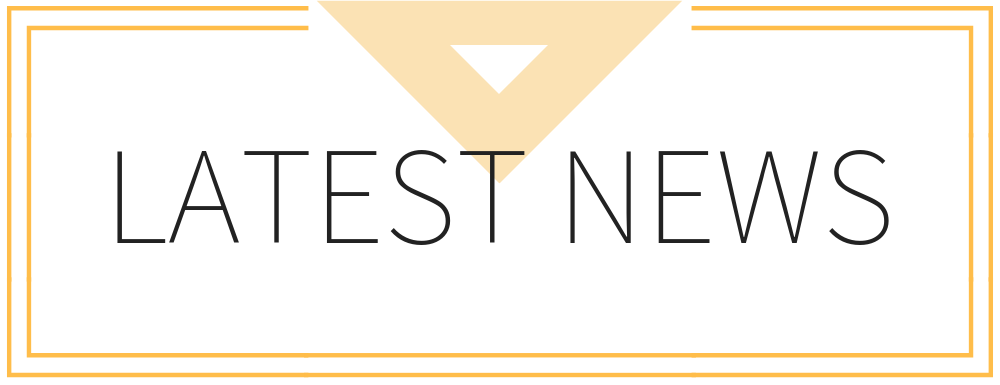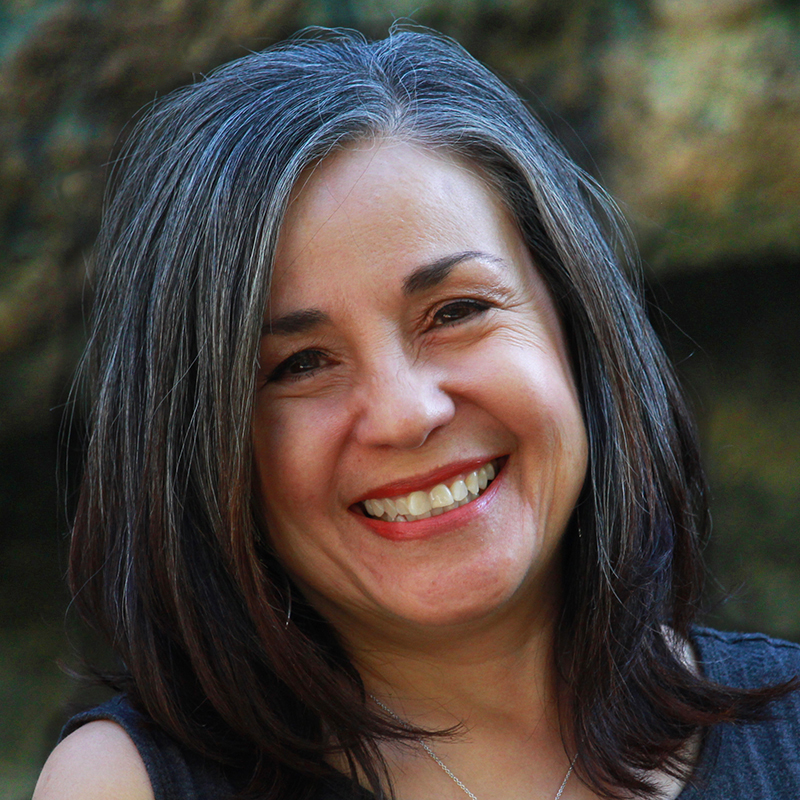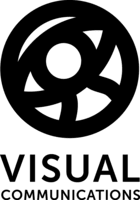Meet a Digital Histories Filmmaker: Carol Shubin
/Our Digital Histories program for the 2018-2019 season will be starting in September, with many returning filmmakers. A video production and storytelling program for senior citizens created in 2003, Digital Histories showcases the unique voices and perspectives of our seniors by sharing their stories with generations to come. If you're interested in supporting Digital Histories (DH), please donate here.
Our Visual Communications (VC) Social Media Intern Elizabeth Kim had a quick chat with Digital Histories Filmmaker Carol Shubin to learn more about her DH experience.
EK: Can you tell us a little a bit about yourself?
CAROL: I'm a recruiter and have been for about 23 years. It is a pretty good career for me because I'm a people person, and I really enjoy helping people find jobs, so I guess that's why I've done it for as long as I have. I have been married for almost 28 years, and have one daughter who's turning 23 this year. She just graduated from Loyola Marymount and will be attending Azusa Pacific University this fall for a Master's program. On the side, I'm a mosaic tile artist and have a Maltese Terrier named Reyna!
EK: How did you find about Visual Communications and Digital Histories?
CAROL: My best friend Barbara Shore found out about it in a very roundabout way. She was at a funeral when her cousin told her all about VC and DH. When she came back, she told me and her husband, Kevin Shore, and we all decided that we were gonna take the class. The class was pretty amazing, I must say.
EK: How long have you been a part of the program?
CAROL: Just a year. This past year was our first time!
EK: What did you guys learn in the Digital Histories classes?
CAROL: I learned how to be a better storyteller. I learned that when you're going from scene to scene, you have to connect each scene, like monkey bars; you should have those smooth transitions. We also learned different ways of setting up interviews. If you're creating a documentary, there are different ways to set up your cameras, depending on how many people you're interviewing at one time. It's also just really working with like-minded people. Everyone in the class has been in DH for a while, and it was about making new friends; it was a completely new experience. The classes were wonderful, and I thoroughly enjoyed them.
EK: Did you have any film background before you went into Digital Histories?
CAROL: What had happened was four years ago, I was going through a little depression because I knew my daughter was going to leave for college. She's my only child, so, honestly, I was pretty sad. I was thinking, "What the heck am I gonna do with myself?", and my best friend, Barbara, said, "Hey, I got this wonderful idea! What if we start a Youtube Channel, and the purpose of it is to uplift, inspire, and highlight people in our communities?" And you know what... this was just what i needed, at that time. It was creative, and the three of us--me, Barbara, and Kevin--started Mini Movie Mamas. We bought cameras and taught ourselves from scratch, all by trial and error. We produced short films, which ended up tying in perfectly with DH. And, you know what, it was a blast! So, by the time we went to our first DH class, we had some experience under our belt.
EK: You said that you learned everything by trial and error. Did joining Digital Histories supplement your existing knowledge?
CAROL: Oh yes, definitely! There were like-minded people, and we would often have discussions. They would say, "Oh, this didn't work for us last time..." or "When I was doing my shoot, this lighting didn't work, and I just happened to get lucky by doing this..." So, it was really wonderful. It broadened our knowledge, and opened our eyes to different areas of lighting and types of millimeter to shoot in.
I guess the most important thing I learned is to have a good story. It doesn't matter how technically savvy you are. If you don't have a good story, it's gonna be super boring. Really, a lot of it was learning about shaping your story, and having an antagonist, a protagonist, a conflict, a resolution. And, it's really keeping those things in mind when you're crafting a story. So, this was helpful to me, because writing isn't my strong suit. It was really eye-opening; it was keeping those basic things in mind as I was crafting my story.
EK: With regards to storytelling, what inspired you to create a story about your daughter? What inspired you to make NOTE TO SELF?
CAROL: Well, I came across some old video footage of her when she was a baby. I mean, it was like "Oh my gosh, I hadn't seen these in years!" And when my best friend and her husband came over my house to film, I was going, "Oh my gosh, I found this video footage, I found audio of her when she was little!" I kept thinking, "It would be so great to do a story incorporating her now as an adult, and then match it up with her baby footage." I liked that idea because I saw the TV show THIS IS US doing that; they go back and forth a lot, between vintage footage to present day. It's very unique, and something I've never done before. I thought combining that style with the concept of her talking to her younger self--now that she's older--would be such a cool story to tell.
EK: What was your favorite part in creating this film?
CAROL: Well, I guess because I'm her mom and I walked this journey with her, I was able to see what a wonderful young lady, a wonderful human being, she has become. And it was really fun because it got her wheels turning to see everything that she's learned, especially since she's already in her 20's now. And it was really nice that she got it. When you're young, everything, for most people, is done for you. Everything is rosy, and you live in a perfect world. You don't know all the work that goes behind the scenes when a parent is raising a child. And, it just happened to be perfect timing because the film premiered on May 6th, and she graduated college on May 5th!
I think my favorite part was creating the very end scene, where you hear her baby voice saying, "I'm gonna go now. Bye...", and you see her as a baby. Then, you see it transition to her in a cap and gown walking out the door. That hit me and made me realize, "Oh my gosh, life goes by really really fast!" Overall, it just was a feel-good movie for me to make.
EK: What was the most challenging part of the filmmaking process?
CAROL: For me, the most challenging part was writing the story because I wrote the script, but it didn't have enough conflict. I was trying to connect the monkey bars to make the story flow better. When you're in the editing process, what you see in your mind and what you're visually looking at on the screen isn't always right, and then you have to figure out how to make it flow better. So, the challenging part was mostly strengthening the story, the writing, and then looking at the film over and over again. It was a short film, but, oh my gosh, there were a lot of hours put into it. It was worth it in the end; it was so fun to see it come together, telling the story I wanted to tell. The whole message of the movie is to never lose your inner child, which was what I wanted to portray.
EK: What was it like to see your film premiere at the Los Angeles Asian Pacific Film Festival?
CAROL: It was wild! It was an experience. If you were to tell me, three years ago, that I was going to have a film in a film festival, I would have never believed you. It was something that wasn't on my bucket list, but now, it went on my bucket list and I checked it off. It was just amazing to see it on a big screen. I think every filmmaker is in awe when they see the final product on a big screen... It's like "Wow, we did it."
EK: As someone who has gone through Digital Histories and has seen your film on the big screen, do you think there is a value behind a program like Digital Histories?
CAROL: Oh my gosh, yes, absolutely! And I'll tell you why... When you become a senior citizen, you're in a different stage of your life. For a lot of people, you don't know what to do with yourself. It's like your kids have grown and gone, you're getting ready to retire, and you think, "What do I do with my life?" You have to reinvent yourself. So, a program like Digital Histories is creative. It makes you feel alive, it makes you feel like you're with like-minded people that want to do something fun and creative. You know, I don't want to be at home in a rocking chair, sitting at home watching TV. I want to exercise my brain, I want to create, I want to tell a story that, hopefully, will inspire other people who are watching it. So, there is a lot of value in this program, and I'm so grateful that we found it.
EK: Do you plan on continuing Digital Histories in the future?
CAROL: Yes, absolutely!
EK: Do you have future projects or dream projects you have in mind?
CAROL: As of matter of fact, I do! I have an idea for my next project, and I'm really excited for the class to start in September. It's gonna be a new semester with new ideas. And, now that I know what to expect, it's gonna be even that much better. Because when you don't know what to expect and you're going in blindly, you feel kind of lost in the beginning. So now that it's the second time around, I understand the process and how it works. It's gonna be better, in my opinion.
Help us continue our Digital Histories program by donating here.







